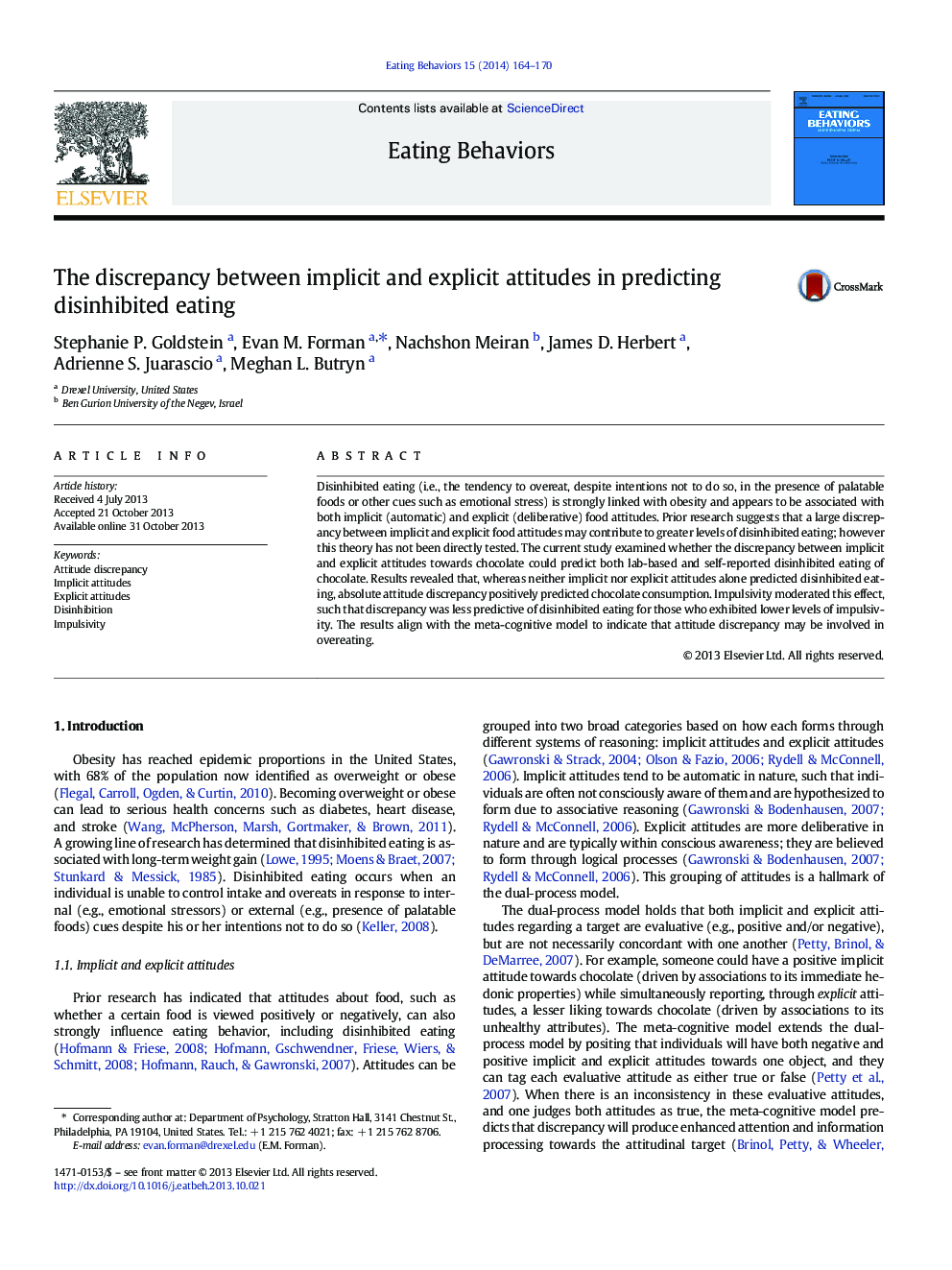| Article ID | Journal | Published Year | Pages | File Type |
|---|---|---|---|---|
| 906443 | Eating Behaviors | 2014 | 7 Pages |
•Study examined relationship between attitude discrepancy and disinhibited eating.•Implicit and explicit attitudes did not predict disinhibited eating.•Attitude discrepancy did significantly predict disinhibited eating.•Impulsivity moderated the relationship between discrepancy and disinhibition.•Results show that discrepancy is a valid predictor of disinhibited eating.
Disinhibited eating (i.e., the tendency to overeat, despite intentions not to do so, in the presence of palatable foods or other cues such as emotional stress) is strongly linked with obesity and appears to be associated with both implicit (automatic) and explicit (deliberative) food attitudes. Prior research suggests that a large discrepancy between implicit and explicit food attitudes may contribute to greater levels of disinhibited eating; however this theory has not been directly tested. The current study examined whether the discrepancy between implicit and explicit attitudes towards chocolate could predict both lab-based and self-reported disinhibited eating of chocolate. Results revealed that, whereas neither implicit nor explicit attitudes alone predicted disinhibited eating, absolute attitude discrepancy positively predicted chocolate consumption. Impulsivity moderated this effect, such that discrepancy was less predictive of disinhibited eating for those who exhibited lower levels of impulsivity. The results align with the meta-cognitive model to indicate that attitude discrepancy may be involved in overeating.
